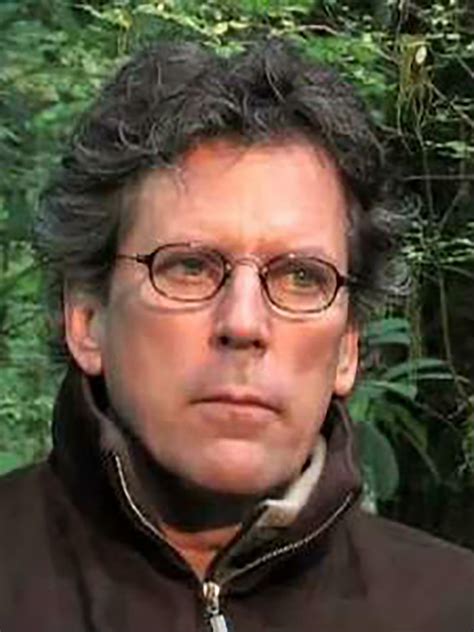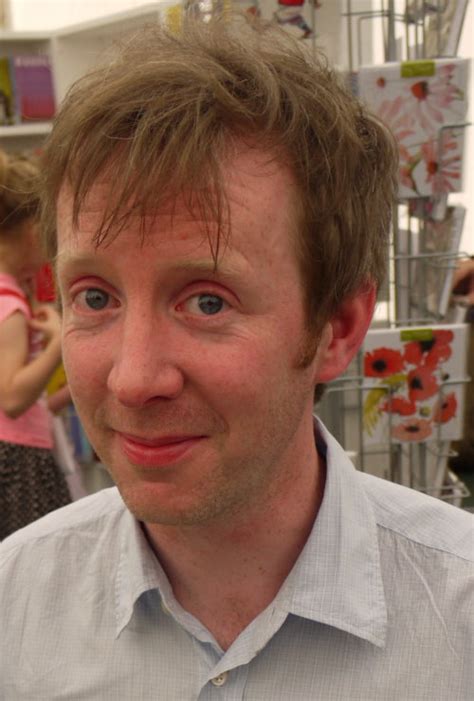A Quote by Jeff Vandermeer
In a sense, fictional dystopias have been a way of distracting us from the truth of our condition by placing it 'over there.'
Related Quotes
Truth is always stranger than fiction. We craft fiction to match our sense of how things ought to be, but truth cannot be crafted. Truth is, and truth has a way of astonishing us to our knees. Reminding us, that the universe does not exist to fulfill our expectations. Because we are imperfect beings who are self-blinded to the truth of the world’s stunning complexity, we shave reality to paper thin theories and ideologies that we can easily grasp – and we call them truths. But the truth of a sea in all it’s immensity cannot be embodied in one tidewashed pebble.
Wonder is like grace, in that it's not a condition we grasp; it grasps us. Wonder is not an obligatory element in the search for truth. We can seek truth without wonder's assistance. But seek is all we'll do; there will be no finding. Unless wonder descends, unlocks us ... truth is unable to enter. Wonder may be the aura of truth, the halo of it. Or something even closer. Wonder may be the caress of truth, touching our very skin.
In the annals of science fiction, where dystopias rule the imaginative roost, Star Trek stood nearly alone in telling us that our future would be better than our past, that our common problems would be solved, that we, as a species, were fundamentally good, and that the universe would reward us for our goodness.
It is difficult to see ourselves as we are. Sometimes we are fortunate enough to have good friends, lovers or others who will do us the good service of telling us the truth about ourselves. When we don't, we can so easily delude ourselves, lose a sense of truth about ourselves, and our conscience loses power and purpose. Mostly, we tell ourselves what we would like to hear. We lose our way.
Deep down we all suspect that something is very wrong with the way we perceive life but we try very, very hard not to notice it. And the way we remain blind to our frightful condition is through an obsessive and pathological denial of being -- as if some dreadful fate would overcome us if we were to face the pure light of truth and lay bare our fearful clinging to illusion.
Women have been driven mad, “gaslighted”, for centuries by the refutation of our experience and our instincts in a culture which validates only male experience. The truth of our bodies and our minds has been mystified to us. We therefore have primary obligation to each other: not to undermine each other’s sense of reality for the sake of expediency; not to gaslight each other.
Our "life education" has not necessarily taught us a satisfying way to live. We suffer from a vague sense that there must be something more, some deeper meaning. We must return to kindergarten and start to learn a way of life that is contrary to the way we approached things before-a way of life based on trust of our own inner truth. We can rediscover the child-like innocence and wisdom that knows that anything is possible.
When we talk about dystopias, especially in young adult fiction, a lot of them are essentially science fictional futures. They aren't necessarily tied to the traditional concept of dystopia. And so in that space, my impression is that kids love reading about weird, wild, adventurous places, and dystopia fits that bill.
... we are obliged to produce the truth by the power that demands truth and needs it in order to function: we are constrained, we are condemned to admit the truth or to discover it. Power constantly asks questions and questions us; it constantly investigates and records; it institutionalizes the search for the truth, professionalizes it, and rewards it. ... In a different sense, we are also subject to the truth in the sense that truth lays down the law: it is the discourse of truth that decides, at least in part; it conveys and propels effects of power.
History, in the end, is only another kind of story, and stories are different from the truth. The truth is messy and chaotic and all over the place. Often it just doesn’t make sense. Stories make things make sense, but the way they do that is to leave out anything that doesn’t fit. And often that is quite a lot.






































